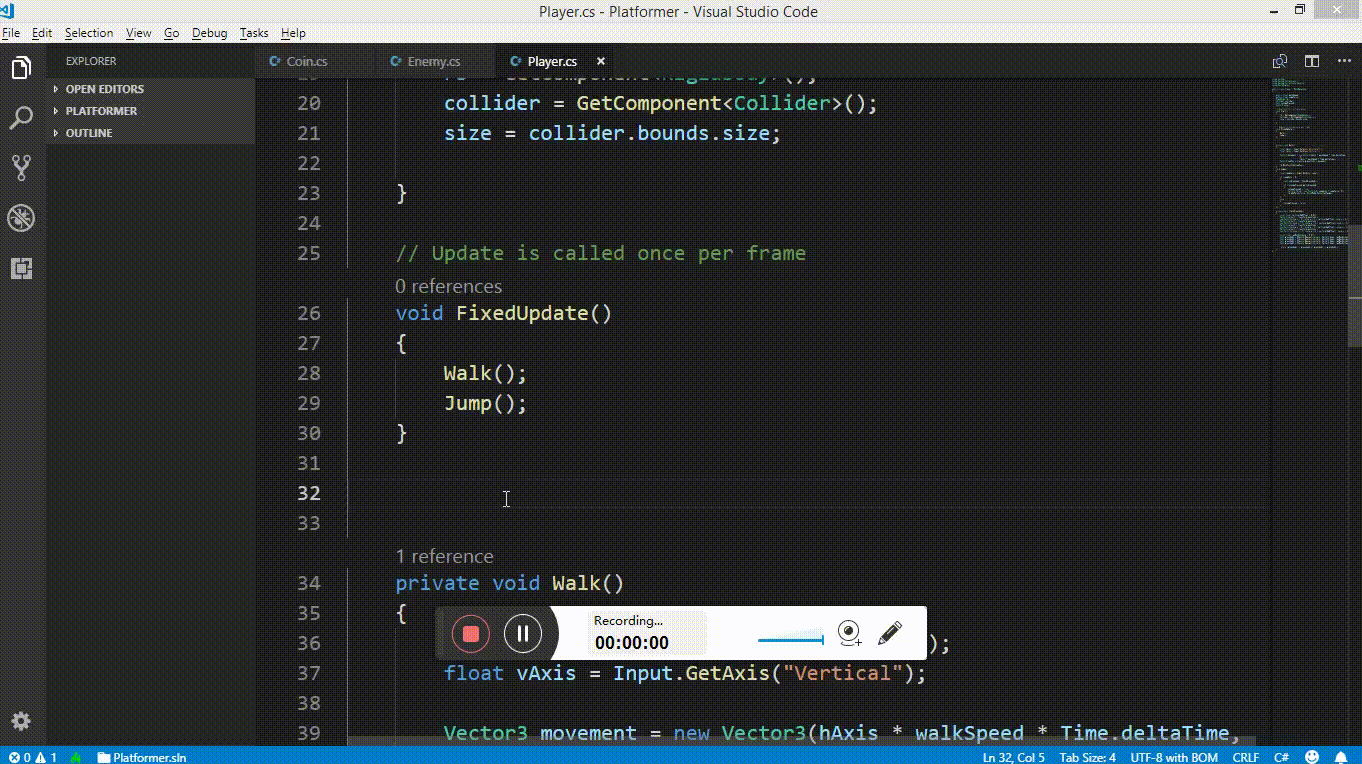The Unity Editor installer includes an option to install Visual Studio with the Visual Studio Tools for Unity plug-in A set of code created outside of Unity that creates functionality in Unity. There are two kinds of plug-ins you can use in Unity: Managed plug-ins (managed.NET assemblies created with tools like Visual Studio) and Native plug. 3 a: the quality or state of being made one: unification. B: a combination or ordering of parts in a literary or artistic production that constitutes a whole or promotes an undivided total effect also: the resulting. The result of close collaboration between Unity, hiring managers, and testing-design specialists, Unity certifications test the core skills needed for a variety of roles so that you can validate your expertise and showcase your readiness for your next professional. Get Unity, then learn all the essentials of game development with Unity Game Dev Courses. Start with the fundamentals, then explore tracks in art, programming and game design. By the time you’re done, you’ll have built the amazing Swords and Shovels game! Get Unity Game Dev Courses for $12/month Subscribe. Get Unity Game Dev Courses FREE. Unity Plus, Pro and Enterprise subscription plans all include the core Unity real-time development platform, continuous updates, beta access, and more - all royalty-free. Compare plans to see the different features, resources, services, and options you can get with each plan, and to determine your eligibility. See all Subscription FAQs.
In Unity you can use scripts to develop pretty much every part of a game or other real-time interactive content. Unity supports scripting in C# and there are two main ways to architect your C# scripts in Unity: object-oriented design, which is the traditional and most widely used approach, ands modern hardware.
DOTS’ multithreaded systems enable you to create games that run on a variety of hardware and build richer game worlds with more elements and more complex simulations. Performant code in turn contributes to optimal thermal control and battery lifetime on players’ mobile devices. By moving from object-oriented to data-oriented design, it can be easier for you to reuse your code and for others to understand and work on it.
As some of the technology of DOTS is in Preview, it is advised that developers use it to solve a specific performance challenge in their projects, as opposed to building entire projects on it. Check out the “More Resources” section at the bottom of this page for links to key DOTS resources.
Debugging in Unity
Tweaking and debugging is efficient in Unity because all the gameplay variables are shown right as developers play, so things can be altered on the fly, without writing a single line of code. The game can be paused at anytime or you can step-through code one statement at a time.
Here are some great resources to learn more about optimizing in Unity:
General best practices (including extensive tips on optimizing Unity’s UI system)
.NET: Unity has used an implementation of the standard Mono runtime for scripting that natively supports C#. Unity currently ships with Visual Studio for Mac instead of MonoDevelop-Unity on macOS. On Windows, Unity ships with Visual Studio.
Unity3d Game Engine
The .NET 4.6 scripting runtime in Unity supports many of the new exciting C# features and debugging available in C# 6.0 and beyond. This also provides a great C# IDE experience to accompany the new C# features.
IL2CPP: This is a Unity-developed scripting backend which you can use as an alternative to Mono when building projects for some platforms. When you choose to build a project using IL2CPP, Unity converts IL code from scripts and assemblies into C++ code, before creating a native binary file (.exe, apk, .xap, for example) for your chosen platform.
Note that IL2CPP is the only scripting backend available when building for iOS and WebGL.

As a programmer you have a great deal of flexibility in Unity because you can extend the editor with your own custom windows that behave just like the Inspector, Scene or any other built-in windows in the standard editor. Adding your own tools to Unity supports you and your team’s unique workflows and needs, ultimately boosting efficiency.

Converting your game to DOTS
DOTS documentation
In Unity Synonym

Overview of Unity real-time 3D platform
What is scripting in Unity?
Scripting tells our GameObjects how to behave; it’s the scripts and components attached to the GameObjects, and how they interact with each other, that creates your gameplay. Now, scripting in Unity is different from pure programming. If you’ve done some pure programming, e.g. you created a running app, you should realize that in Unity you don’t need to create the code that runs the application, because Unity does it for you. Instead, you focus on the gameplay in your scripts.
Unity runs in a big loop. It reads all of the data that’s in a game scene. For example, it reads through the lights, the meshes, what the behaviors are, and it processes all of this information for you.
If you think about television, where, for example in North America, you have 29.5 frame/sec, Unity needs to do the same thing. It’s running single discrete frames, one after another. You direct Unity with the instructions that you write in your scripts, and Unity executes them frame after frame as fast as it can.
Achieving a high frame rate means not only your game will look more fluid, but your scripts will also be executed more often, making controls more responsive.
